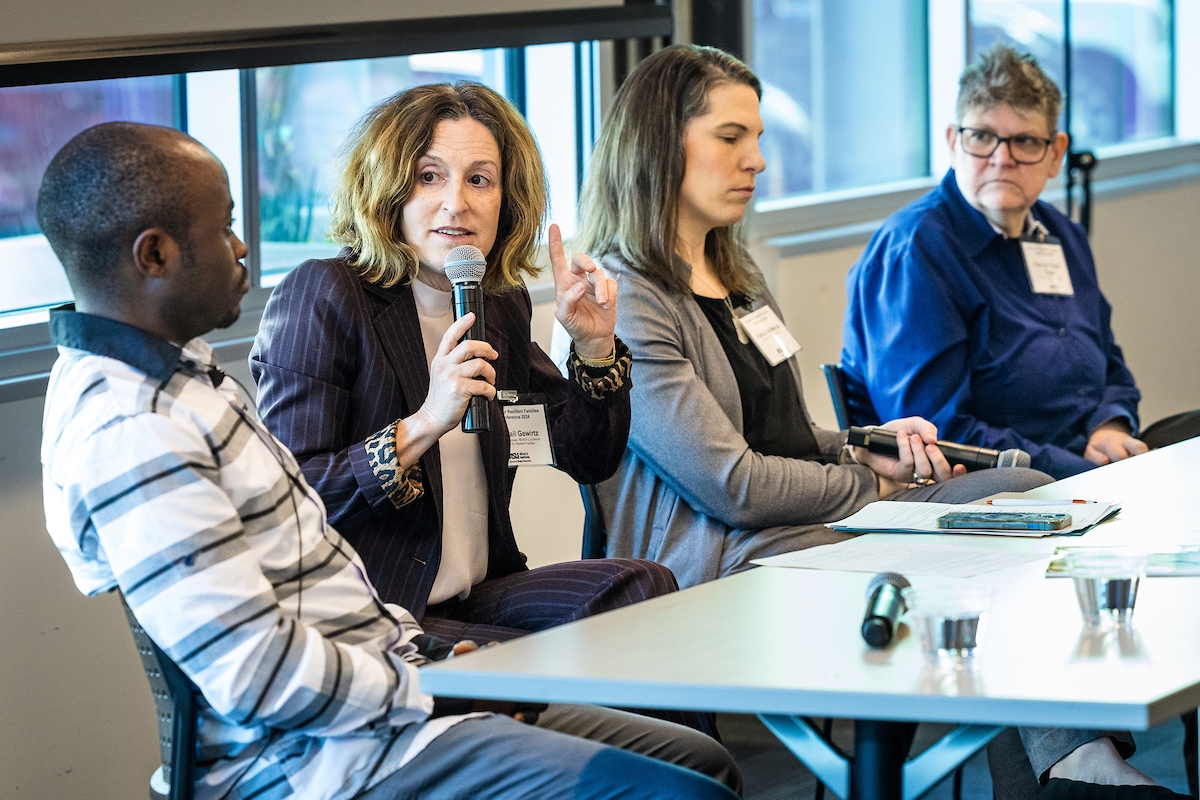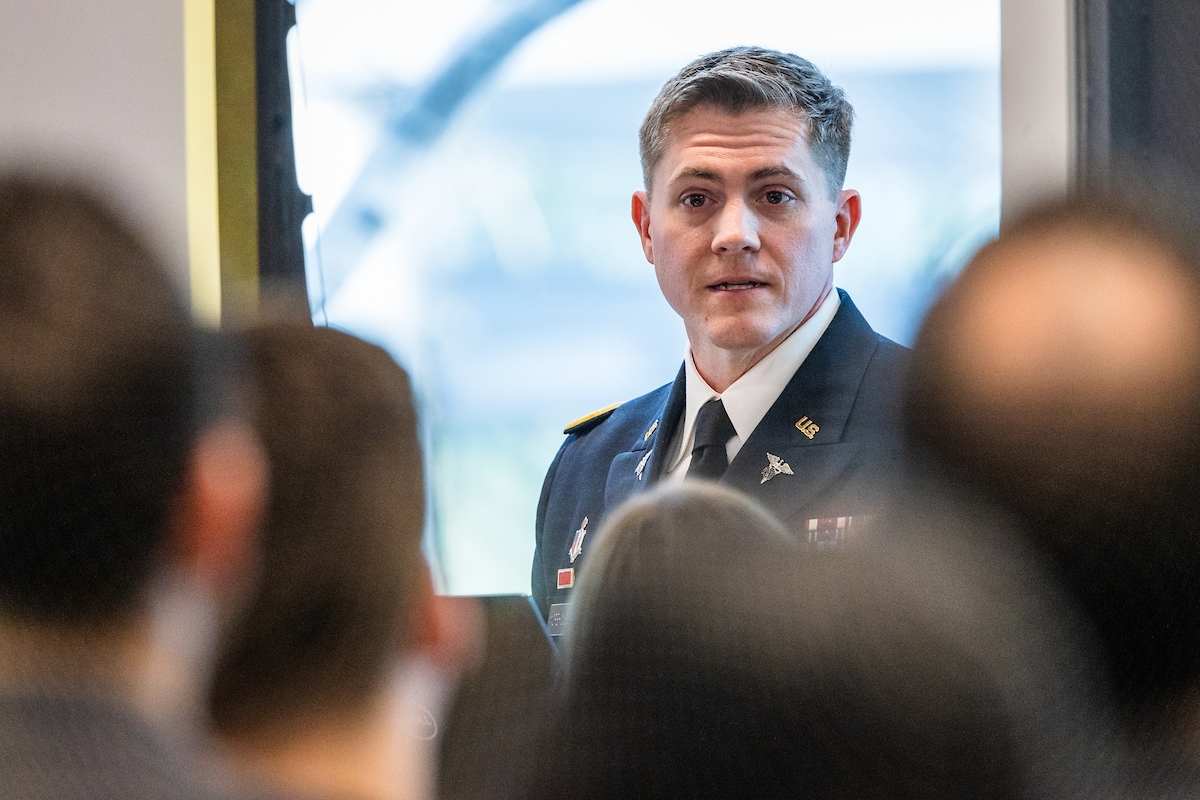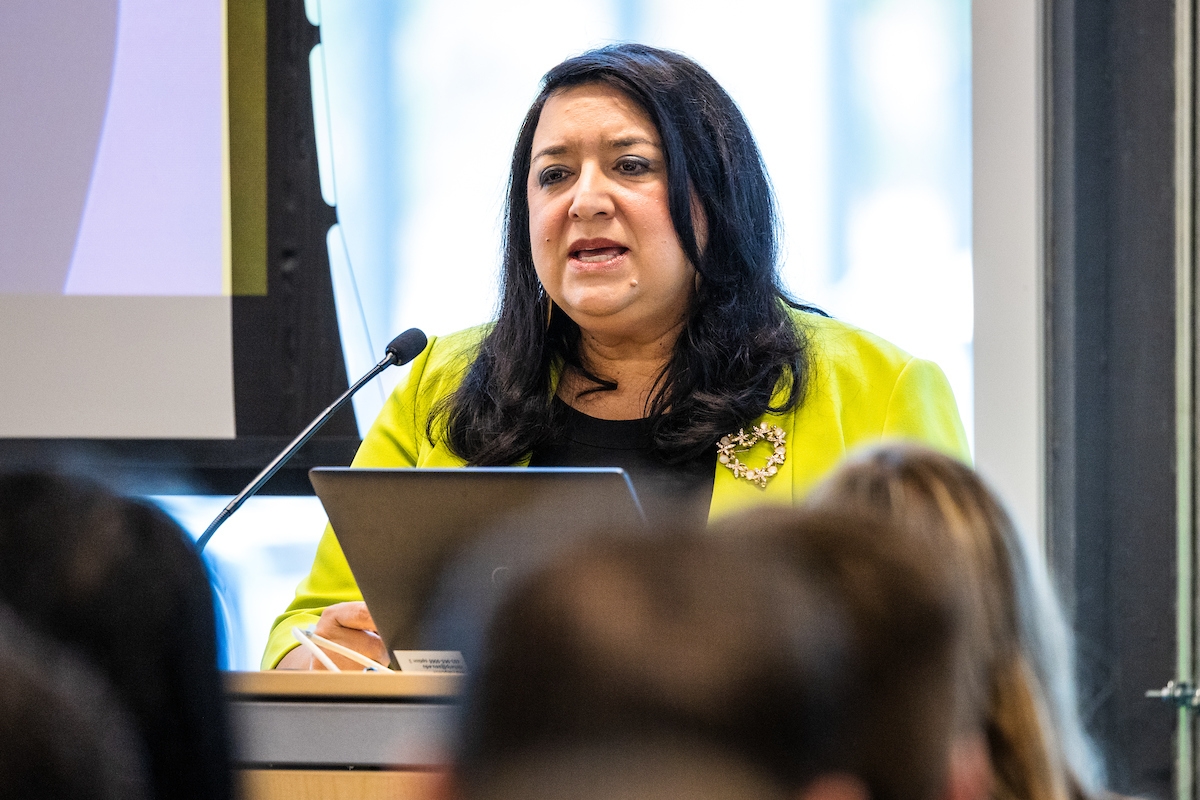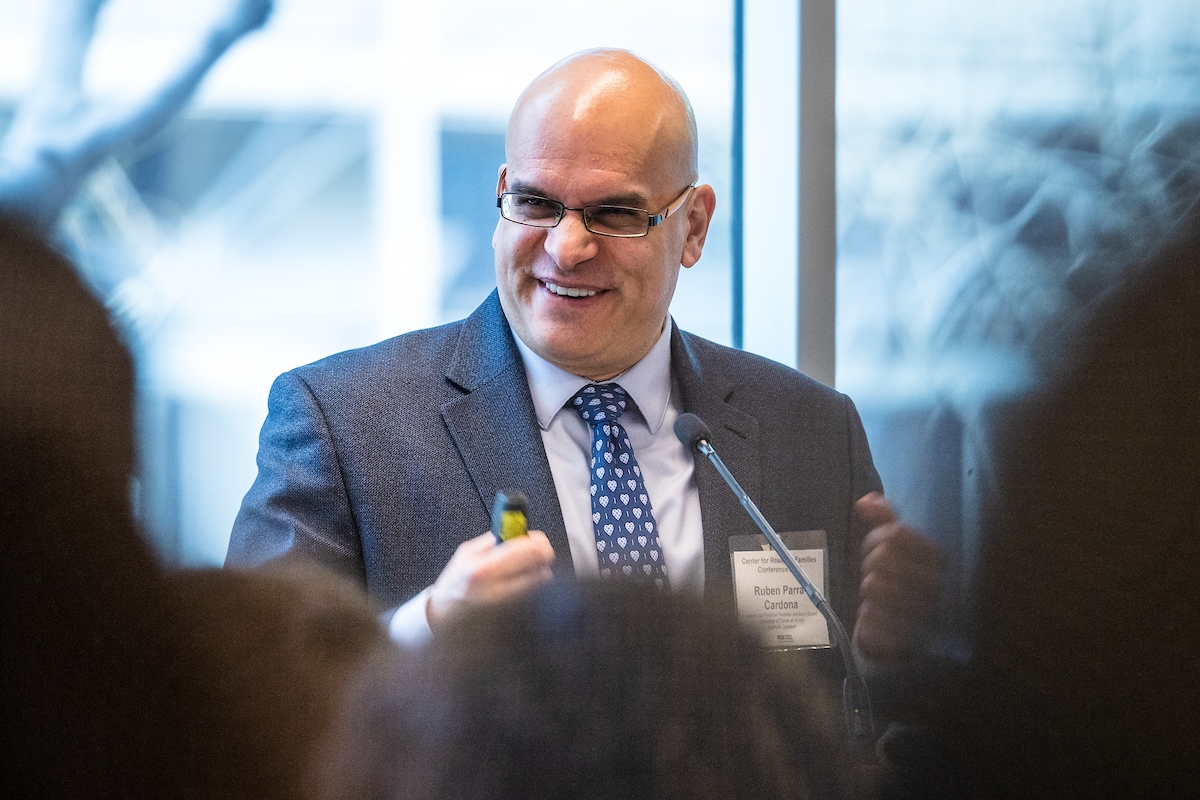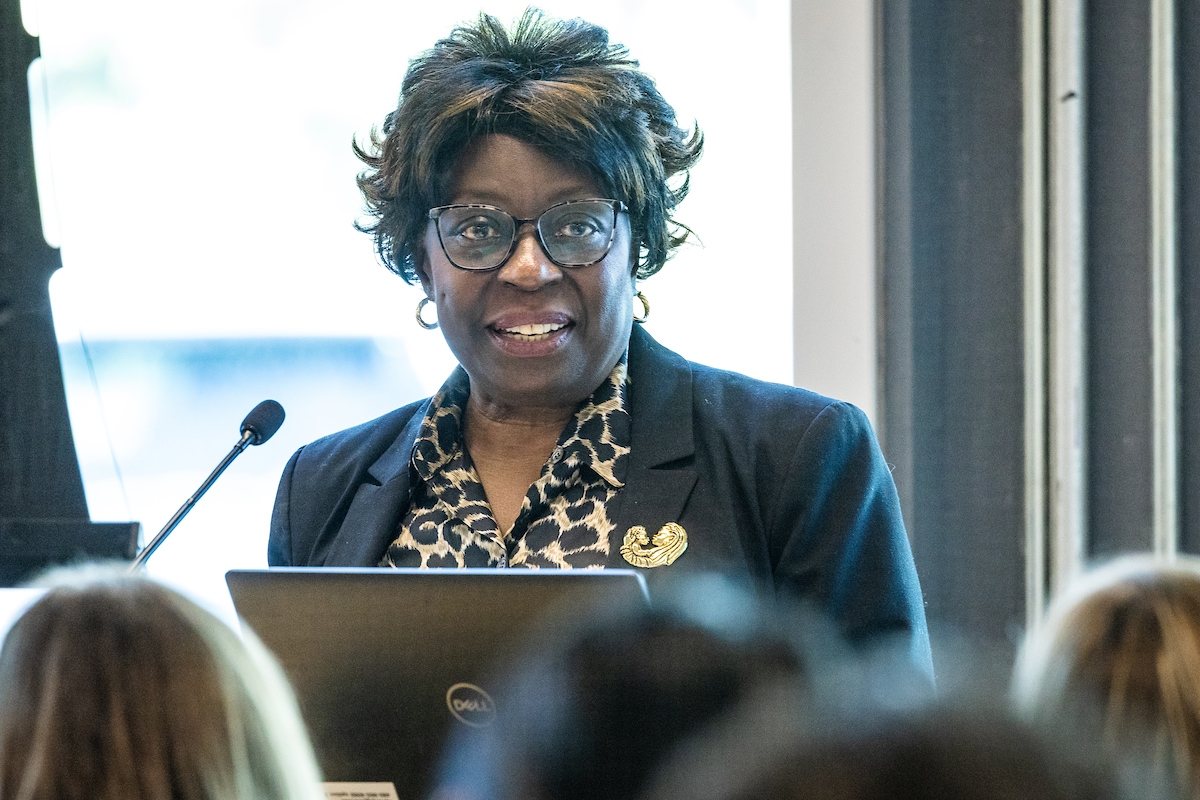ASU REACH Institute, Center for Resilient Families host event to promote family resilience
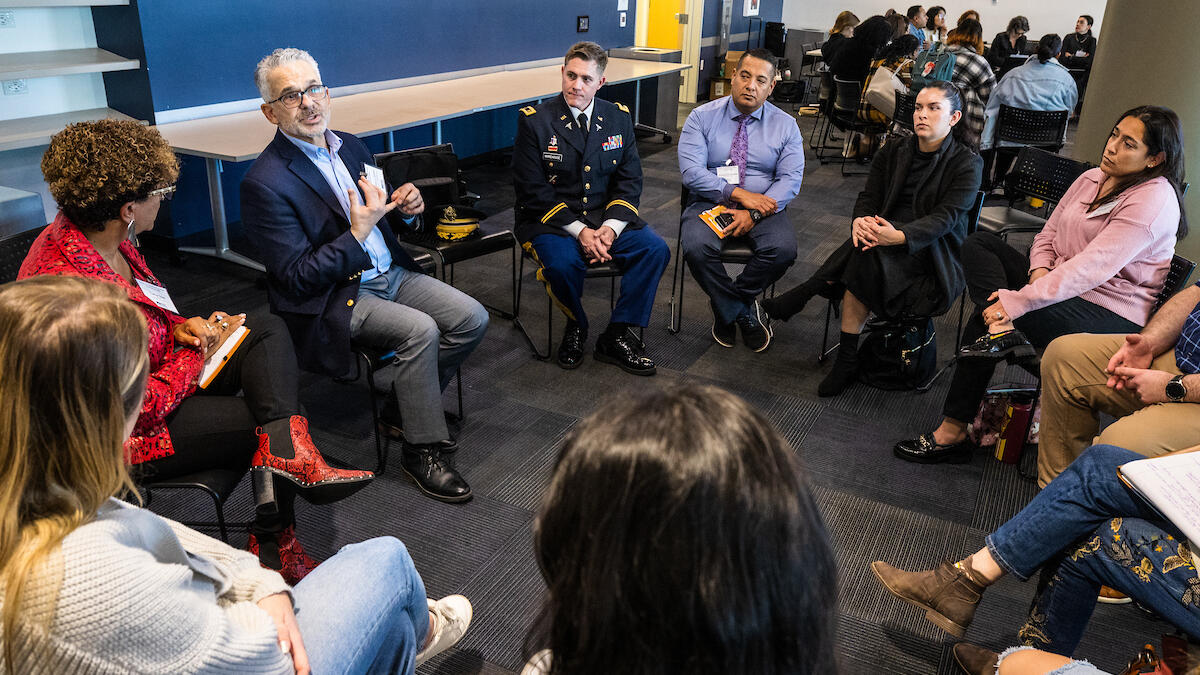
Retired U.S. Army Col. Stephen J. Cozza (second from left) leads a table discussion on military and first responders' family resilience at the ASU REACH Institute and Center for Resilient Families' “The Power of Parenting: Supporting Children Through Crucial Transitions” conference on Friday, Feb. 2. The conference brought together academic professionals, military and civilian experts, and caregivers dedicated to understanding and addressing the challenges of transitions for children and families. Photo by Charlie Leight/ASU News
Childhood trauma isn’t always preventable. But what researchers do know is that engaging parents in their children’s healing has been shown to improve mental health outcomes. And while many intervention programs have been developed to address the issue, few are making it into widespread practice.
The Center for Resilient Families at Arizona State University's REACH (Research and Education Advancing Children’s Health) Institute is working to bring these research-tested interventions to families and children to promote resilience and enhance their well-being. One way the center facilitates that is by convening experts in the field of family and child psychology and related professions to encourage the sharing of ideas and best practices.
On Feb. 2, the center welcomed a group of approximately 200 diverse individuals including researchers, mental health professionals, policy advocates, educators, community leaders and parents to “The Power of Parenting: Supporting Children Through Crucial Transitions” conference at ASU.
Abigail Gewirtz, director of the center and co-director of the REACH Institute, kicked off the conference by stating, "Today is not only about discussing the current challenges families are facing, but more importantly, we want to showcase effective strategies toward family growth, learning and strength."
A diverse group of keynote speakers — including Maj. Daniel Morehouse, Arizona Army National Guard; January Contreras, president and CEO, Children’s Action Alliance; Ruben Parra-Cardon, professor and associate dean, School of Social Work, University of Texas, Austin; and Antonia Apolinaro-Wilcoxon, president and founder, Equity Strategies, LLC — highlighted stories of families overcoming great challenges with the use of research-based interventions and family-friendly policies – some of which, like the ADAPT program, are offered through the REACH Institute at ASU.
Morehouse described the general stress of deployment that most non-military families can also relate to. “Most people who serve in the Guard are volunteers; they have regular jobs and family routines," he said. "When a parent is deployed into service, it can be sudden and put extra stress on daily life: 'Who picks up the kids? What happens when the water heater breaks?' all become a little more challenging. Being prepared instead of being reactive is great, and having tools like ADAPT helps your family be much better prepared for the challenges of deployment."
Contreras discussed the link between poverty and trauma and highlighted how important policy is to create opportunities to break the cycle. “We have the data and research," she said. "We need to use this knowledge to support prevention and change dynamics.” Contreras gave an overview of some of the policies that are currently being developed and also shared about areas where more help is needed to move things forward to support resilient families.
When reflecting on his work with the Latino immigrant community, Parra-Cardona noted how addressing discrimination is important when working with families. "Immigrant families are likely to feel every morning is a fight," he said. "One of the things I hear from immigrant families is that they (the parents) will learn to cope. 'My children will overcome.’ We have seen success with positive parenting interventions helping families identify triggers resulting from the adversity they experience and ultimately breaking cycles of trauma."
A panel discussion of local families shared their stories of resilience to close the general session before the attendees broke into smaller group discussions on resilience within military and first responder families, families coping with loss, families affected by forced migration, parents impacted by high-conflict divorces and co-parenting, and strategies to build a supportive community.
“Our goal for this conference was to bring together experts, practitioners and parents to delve into topics such as adapting to new family structures, coping with major life events and fostering resilience in children and parents," Gewirtz said. "This conference lays the foundation for creating a community dedicated to improving the lives of children and families.”
ASU REACH programs
Researchers at the ASU REACH Institute have developed several evidence-based programs that focus on improving the lives of children and families. Learn more.
More Health and medicine

Health Solutions graduate trains to become a better health educator
Editor’s note: This story is part of a series of profiles of notable fall 2024 graduates.At almost 15 years old, Robyn Colao, who is now graduating from the health sciences program at the …
ASU team part of nationwide study looking at Type 2 diabetes in youth
Near the end of an interview in which he talked about the work his team will be doing to tackle the rise in Type 2 diabetes among youth, Arizona State University Professor Gabe Shaibi answered why…
Leading the way in wellness: ASU highlighted in The Princeton Review's 2025 Mental Health Services Honor Roll
Being a college student isn’t easy — navigating new routines, people and places can be a challenge, especially if the right support system is not in place. That's why Arizona State University is a…
